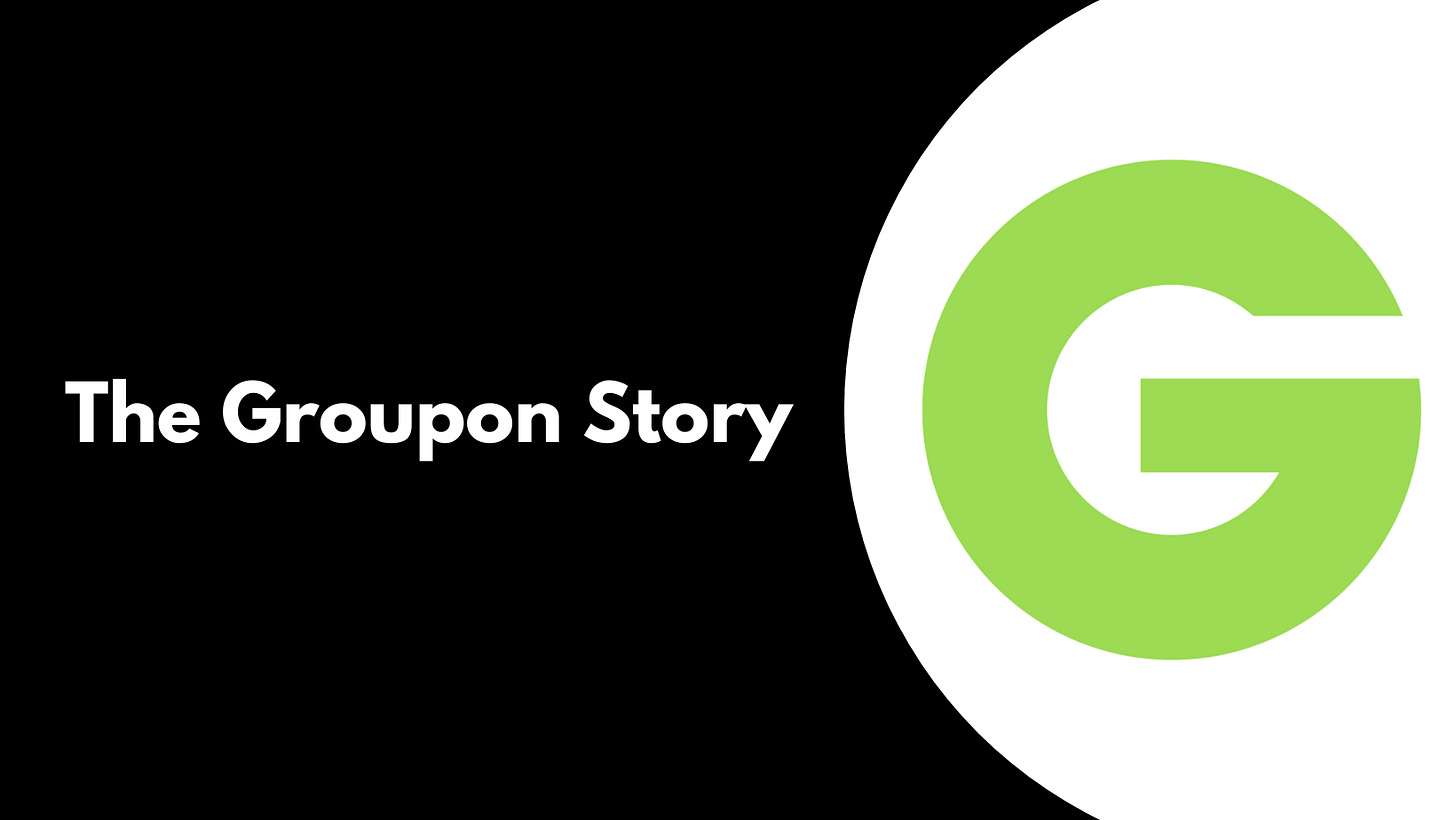🍕Pivots, Pizzas, and the Chicago Bulls: Lessons from Groupon's Early Success.
In today's edition of our newsletter at Airtribe, we are delving into the fascinating founding story of Groupon.
Groupon, a portmanteau of 'Group' and 'Coupon', was one of the fastest-growing startups in their space, attracting billion-dollar acquisition proposals from Google and Yahoo. Notably, at their peak, the company famously rejected a $6 billion bid from Google, a testament to its rapid growth at the time. The story of their beginnings and their early hustle is a journey worth exploring. Join us as we dive into it.
The Founding Story
Andrew Mason's experience with a difficult mobile phone contract cancellation in 2006 sparked the idea for Groupon. He launched The Point in 2007, a site aimed at uniting people for common goals using social media. The Point only saw moderate success until users started organizing group buys for discounts. This shift towards group buying caught Eric Lefkofsky's attention, leading them to pivot the company's focus. Groupon, centered on this concept of collective buying, was launched in November 2008.
Building Initial Traction
In 2008, Groupon's early team members created an initial email list of 500 people, including friends, family, and acquaintances, to kickstart their customer base. Their first deal, a two-for-one pizza offer at a bar located beneath their Chicago office, marked the beginning of their venture. This inaugural offer caught the attention of businesses throughout Chicago, leading to a ripple effect in the city. As the concept gained traction, Groupon began offering deals for larger businesses, including notable entities like the Art Institute of Chicago.
Product-Led Growth
Everyone loves a good discount. To introduce virality and benefit both customers and businesses with exclusive offers, Groupon set a condition: offers would only unlock after reaching a certain number of signups. This strategy encouraged people to share Groupon with their friends, effectively serving as a powerful tool for acquiring new customers. Additionally, Groupon listed local businesses with minimal online presence, ensuring that the deals remained exclusive and attractive.
Referral Strategy
Groupon's referral program played a significant role in its growth strategy. By offering a $10 incentive for every successful referral, the company cleverly leveraged its customer base to expand its reach. In 2012, the estimated lifetime value of a Groupon user was around $30. This meant that with the $10 referral bonus, Groupon effectively earned a net gain of $20 per successful referral
💡 While researching for this article, we discovered an interesting anecdote on Quora shared by a Groupon employee about how they capitalized on an unofficial Chicago Bulls deal. You can read the story below!
Chicago Bulls Deal
Shawn, a founding member and VP of Business Development at Groupon, shared an intriguing story about their early dealings with the Chicago Bulls. Initially, the Bulls' sales team showed interest in Groupon's concept, but their marketing department was not convinced. Despite persistent efforts to seal the deal, Groupon's proposal was ultimately rejected.
Undeterred, Groupon discovered a workaround through the Bulls' "group sales" department, which offered a 50% discount for groups of 25 or more. The day after their rejection, Groupon featured a deal for a Bulls game and successfully sold 26 Groupons. They then purchased 26 tickets from the Bulls' group sales to fulfill their offer.
At the time, Groupon lacked a formal distribution system, so they had to hand-deliver most of these tickets to their customers. This move did not go unnoticed by the Bulls, leading to an irate call from their marketing department regarding the unauthorized use of their logo. Groupon promptly removed the logo from their site and apologized.
However, this move helped Groupon gain credibility and subsequently secure deals with other notable Chicago brands, including Whole Foods, which collaborated with them on a Thanksgiving dinner package.
This anecdote highlights the true essence of brute force and hustle that's often required in an early-stage startup.
Tech Mastery For Product & Business Professionals
In today's tech-centric world, understanding the technology behind the products you build, market, sell, and design is crucial. This can be daunting for those with a non-technical background. That's why we've created a structured program covering all the essential tech skills needed for professional competence. Apply now and elevate your tech proficiency.
Job Board
That’s all for today, folks! Hope you enjoyed this week’s newsletter. We’ll see you next week. 🤗
Until then, keep learning and growing! 👋









